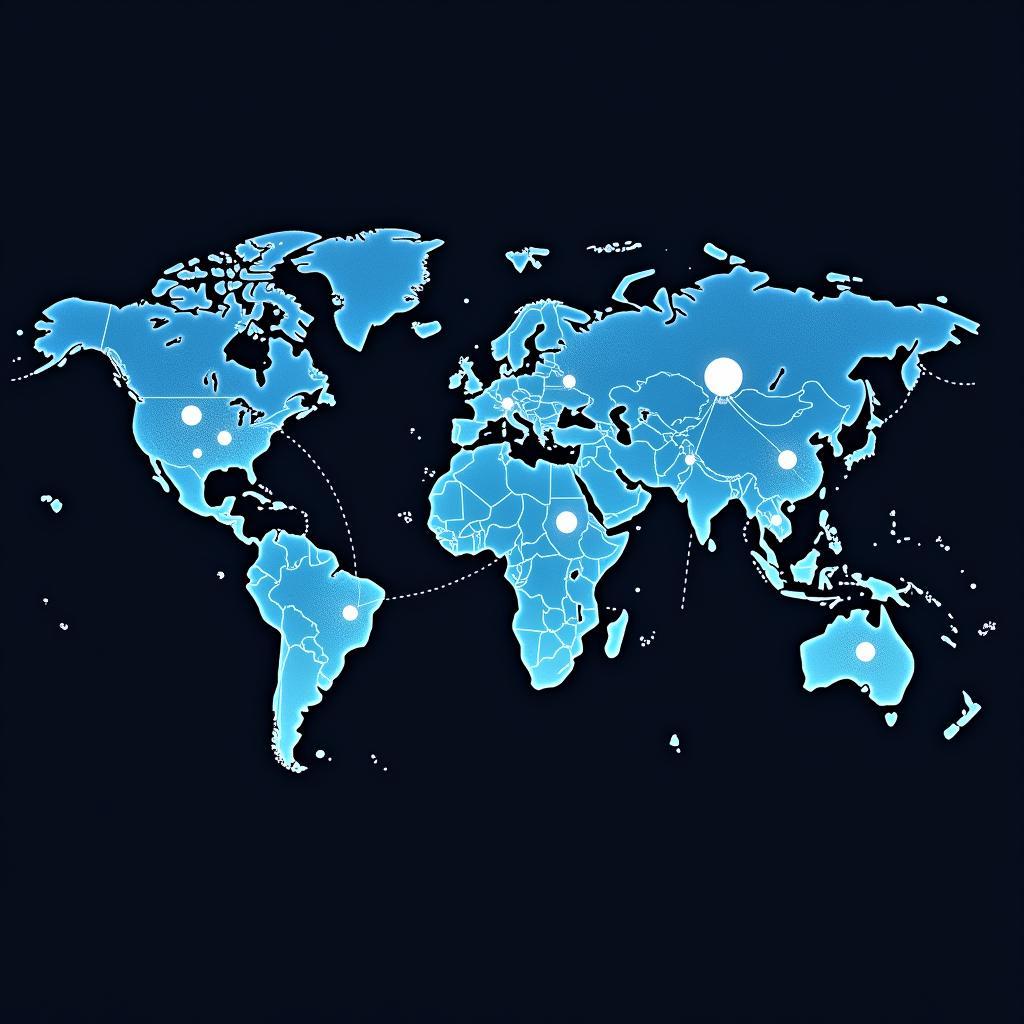Defining contemporary society is like trying to grasp a constantly shifting kaleidoscope. It refers to our present-day world, shaped by rapid technological advancements, globalization, and evolving social norms. Understanding this complex landscape is crucial for fostering peace and promoting cross-cultural understanding in our increasingly interconnected world. Just after the turn of the 21st century, many changes have impacted our modern world. These changes influence every facet of our lives, from the personal to the political, and understanding their implications is key to navigating the complexities of the present day.
Key Characteristics of Contemporary Society
What exactly makes our society “contemporary”? Several key characteristics distinguish it from previous eras. Technological advancement, particularly the internet and mobile devices, has connected billions across the globe, creating a truly globalized world. This interconnectedness has fostered both opportunities and challenges, blurring geographical boundaries and accelerating the exchange of information and culture. Simultaneously, social norms around identity, family structures, and social justice are in constant flux, challenging traditional values and fostering new perspectives. This dynamic interplay of technology and social change creates a unique environment that defines our present era. Let’s delve into these aspects in more detail.
Technological Advancements and Their Impact
Technology has revolutionized communication, information access, and even the very fabric of our social interactions. The rise of social media platforms has enabled individuals to connect with others across geographical boundaries, fostering online communities and enabling the rapid dissemination of information. This ease of communication has facilitated social movements and political activism, empowering individuals to voice their opinions and mobilize for change. However, it also presents challenges, such as the spread of misinformation and the erosion of privacy. These technological advancements are a defining feature of contemporary society and require careful consideration as we strive to create a more peaceful and understanding world.
 Impact of Technology on Contemporary Society
Impact of Technology on Contemporary Society
Globalization and Interconnectedness
Globalization has profoundly impacted contemporary society, creating a complex web of interconnectedness. Economic interdependence, international trade, and the flow of information across borders have blurred geographical lines and fostered a sense of global citizenship. This interconnectedness presents opportunities for collaboration and cultural exchange, allowing us to learn from one another and build bridges of understanding. However, it also presents challenges, such as economic inequalities and the potential for cultural homogenization. Navigating these complexities is crucial to fostering peace and cooperation in our globalized world. Understanding the nuances of different cultures and perspectives becomes even more vital in this interconnected environment.
 Globalization and Interconnectedness in Contemporary Society
Globalization and Interconnectedness in Contemporary Society
Shifting Social Norms and Values
Contemporary society is marked by rapidly evolving social norms and values. Traditional concepts of family, gender roles, and social hierarchies are being challenged, leading to greater diversity and inclusivity. Movements for social justice, equality, and human rights have gained momentum, advocating for a more just and equitable world. These shifts, while often accompanied by friction and debate, represent a vital process of societal evolution. Understanding and engaging with these evolving norms is crucial for fostering dialogue and building a more inclusive and peaceful future.
Consider the changing perceptions surrounding family structures. The traditional nuclear family is no longer the sole norm, with increasing acceptance of diverse family arrangements. Similarly, gender roles are becoming more fluid, challenging traditional expectations and fostering greater equality. These are just a few examples of the evolving social landscape that defines contemporary society.
 Shifting Social Norms in Contemporary Society
Shifting Social Norms in Contemporary Society
How Does History Shape Contemporary Society?
Understanding contemporary society requires a look back at the past. Historical events, social movements, and cultural shifts have all played a role in shaping the world we live in today. For example, examining the German family society can offer valuable insights into how cultural traditions and family structures have evolved over time. Similarly, researching the Marshall Historical Society can provide context for understanding current social dynamics and challenges. Exploring resources like National Society of the Sons of Utah Pioneers can offer unique perspectives on regional history and its impact on contemporary society. These historical lenses provide valuable insights into the complexities of the present day.
What are the Challenges Facing Contemporary Society?
Contemporary society faces numerous complex challenges. Climate change, economic inequality, political polarization, and social unrest are just a few examples. Addressing these challenges requires global cooperation, innovative solutions, and a commitment to building a more sustainable and equitable future. Understanding these challenges is the first step towards creating positive change.
What is the Role of Individuals in Contemporary Society?
In our interconnected world, individuals have a significant role to play in shaping contemporary society. By promoting peace, understanding, and empathy, we can contribute to a more just and harmonious world. Engaging in respectful dialogue, challenging injustice, and advocating for positive change are essential actions for building a better future.
“Understanding the nuances of contemporary society is essential for effective peacebuilding,” states Dr. Anya Sharma, a renowned sociologist and peace advocate. “Recognizing the interconnectedness of global issues and the evolving nature of social norms is crucial for fostering dialogue and creating lasting solutions.”
Conclusion
Defining contemporary society is a complex endeavor, but understanding its key characteristics – technological advancements, globalization, and shifting social norms – is essential for navigating the challenges and opportunities of our time. By embracing diversity, promoting dialogue, and working towards a more just and peaceful world, we can create a better future for all. Understanding how concepts like society’s opinion on music or even looking at examples within the classic society can help us frame contemporary challenges in a broader context.
FAQ
- What are the main features of contemporary society?
- How does technology influence contemporary society?
- What are the benefits and drawbacks of globalization?
- How are social norms changing in contemporary society?
- What are the major challenges facing contemporary society?
- How can individuals contribute to a more peaceful contemporary society?
- What are some examples of social change in contemporary society?
Common Situations and Questions:
-
Situation: Feeling overwhelmed by the rapid pace of change in contemporary society.
-
Question: How can I adapt to the constant changes in technology and social norms?
-
Situation: Concerned about the impact of globalization on local cultures.
-
Question: How can we preserve cultural diversity in a globalized world?
-
Situation: Wanting to contribute to positive social change.
-
Question: How can I make a difference in addressing the challenges facing contemporary society?
Further Exploration:
For more information on related topics, explore other articles on our website, such as those focusing on specific cultural or historical aspects of society.
Call to Action
For any support or inquiries, contact us 24/7 at Phone: 02043854663, Email: [email protected], or visit our office at Zone 34, Bac Giang, 260000, Vietnam. Our dedicated customer support team is ready to assist you.